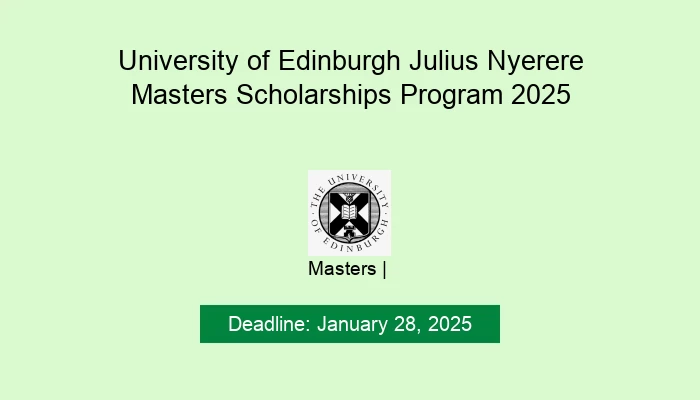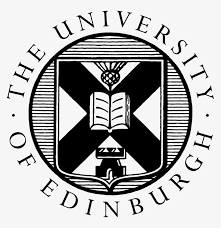Published: 12 Dec 2024 2,744 views

The Nyerere Scholarship provides funding for a talented Tanzanian graduate to follow in Julius Nyerere’s footsteps and study at the University of Edinburgh. The successful candidate will receive funding for a one-year postgraduate scholarship in the multidisciplinary MSc in Africa and International Development programme. Applicants must be Tanzanian citizens domiciled in Tanzania, who have graduated from the University of Dar es Salaam within the last three years (i.e. 2022-2024) or will be graduating from the University of Dar es Salaam in 2025.
From Nobel laureates and Olympic champions to space explorers and prime ministers, the University of Edinburgh has been influencing history since it opened the gates to its first students in 1583. Following the Scottish Enlightenment of the 18th century, the University was positioned at the forefront of academia and critical thinking. Due to the determination and perseverance of a group of Edinburgh intellectuals, established facts about the world were being boldly and consistently challenged. Amid this group was David Hume, philosopher, economist and essayist known for his philosophi... continue reading

| Application Deadline | 28 Jan 2025 |
| School to study | University of Edinburgh |
| Type | Masters |
| Sponsor | University of Edinburgh |
| Gender | Men and Women |
The award will be made to a Tanzanian citizen domiciled in Tanzania who has graduated from the University of Dar es Salaam within the last three years (i.e., 2022-2024), or will be graduating from the University of Dar es Salaam in 2025, and who is accepted on the full-time MSc Africa and International Development programme
Notification: The CAS Selection Panel will meet in February to review the scholarship applications. All scholarship applicants will be contacted with the outcome by the end of March 2025.
(i) – List two books that you have read in the last five years which have had an impact on you. List the title and author of the books, and explain briefly what each book is about and why it has made an impression on you.
(ii) – Why do you wish to do further studies? How would a MSc in Africa and International Development facilitate your career goals?
(iii) – What do you think is one of the most pressing problems in Tanzania that needs research? How would you go about researching it? Who would be interested in or benefit from your findings? How and why?
(iv) – What are Tanzania’s major advantages in global development? Why and how are they advantageous? Who benefits from them?
Check also:
Tony Elumelu Foundation African Entrepreneurship Programme 2026
For more details,visit University of Edinburgh webpage